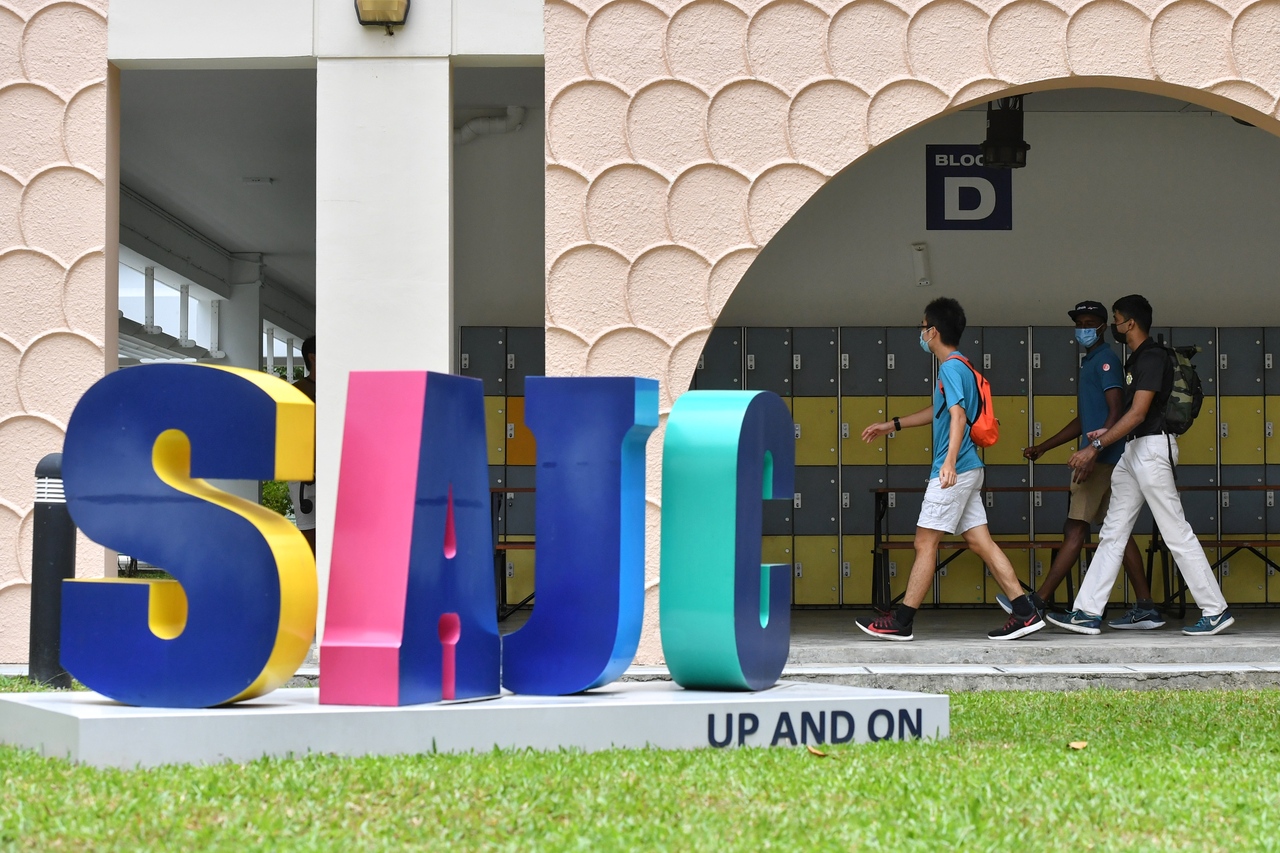Budget debate: 5 changes that will impact students in Singapore
Sign up now: Get ST's newsletters delivered to your inbox

Schools have previously removed mid-year examinations for some levels to shift from focusing solely on testing to discovering the joy of learning.
PHOTO: ST FILE
Follow topic:
SINGAPORE - The Ministry of Education on Monday (March 7) announced several changes to give students greater flexibility in what they wish to study, and admission to schools and post-secondary institutions.
Here are some highlights:
1. No more mid-year exams for primary, secondary schools
Mid-year examinations in all primary and secondary schools will be scrapped by next year.
This will free up three weeks of curriculum time per year for educators to spread out their lessons and use creative ways to help students learn.
Schools have previously removed mid-year examinations for some levels, such as Primary 5 and Secondary 1, as part of the shift from focusing solely on testing to discovering the joy of learning.
Curriculum content and assessment demands across schools will also be reviewed.
2. Expansion of full subject-based banding
From 2024, three secondary schools - Crescent Girls', Tanjong Katong Girls' and Tanjong Katong Secondary - that currently offer only the more demanding Express course will take in students of varying academic strengths after the Primary School Leaving Examination.
They will each have two classes of students mainly taking G2 subjects. These students may take subjects at the more challenging G3 level if they qualify.
The addition of the three schools is part of the expansion of full subject-based banding, in which students take subjects at a higher or lower level, depending on their strengths.
By 2023, about 90 schools - more than two-thirds of secondary schools - would have implemented full subject-based banding, up from 59 currently.
From 2024, the current streaming system - sorting students into Express, Normal (Academic) and Normal (Technical) classes - will no longer be in place.
3. More direct school admission vacancies in JCs
More places in junior colleges (JCs) will be made available for students entering with talents apart from their grades through the direct school admission (DSA) exercise from this year.
The number of DSA places for non-Integrated Programme students will go up from 10 per cent to 20 per cent of the yearly cohorts at government and government-aided JCs. These include Anderson Serangoon JC, Eunoia JC and Victoria JC.
4. More Normal (Academic) students can apply directly to polytechnics
The Polytechnic Foundation Programme will be expanded to allow about 200 more Secondary 4 Normal (Academic) students to apply directly to a polytechnic for a foundation year instead of completing Secondary 5 and the O levels.
It will relax some grade requirements for entry starting with the intake for 2024. The programme currently enrols about 1,500 successful applicants per year.
MOE is reviewing the post-secondary admission pathways, to better recognise students' different combinations of subjects at varying levels. Changes will be introduced in stages and fully implemented by the academic year in 2028.
5. New third language programme
Over the next few years, the MOE will pilot a third language programme that will be conducted through modules that can "stack" up to a certificate, so that more secondary school students can learn new languages and discover other cultures.
This approach will provide greater flexibility and accessibility for students to learn a third language.
The ministry also wants every school to have at least one overseas partnership with a school abroad, to organise virtual or in-person student exchanges. Currently, around two-thirds of schools have established such partnerships.
In addition, Raffles Institution will become the fourth host school for a Malay-language elective programme from next year. Students from other schools can also attend the programme.
Currently, three schools - Anderson Secondary, Bukit Panjang Government High and Tanjong Katong Secondary - run the programme, from Secondary 1 to Secondary 4.
These schools support students through language and cultural activities, such as camps and immersion initiatives, to help them attain a high level of proficiency in the language and a deep appreciation of Malay culture.

